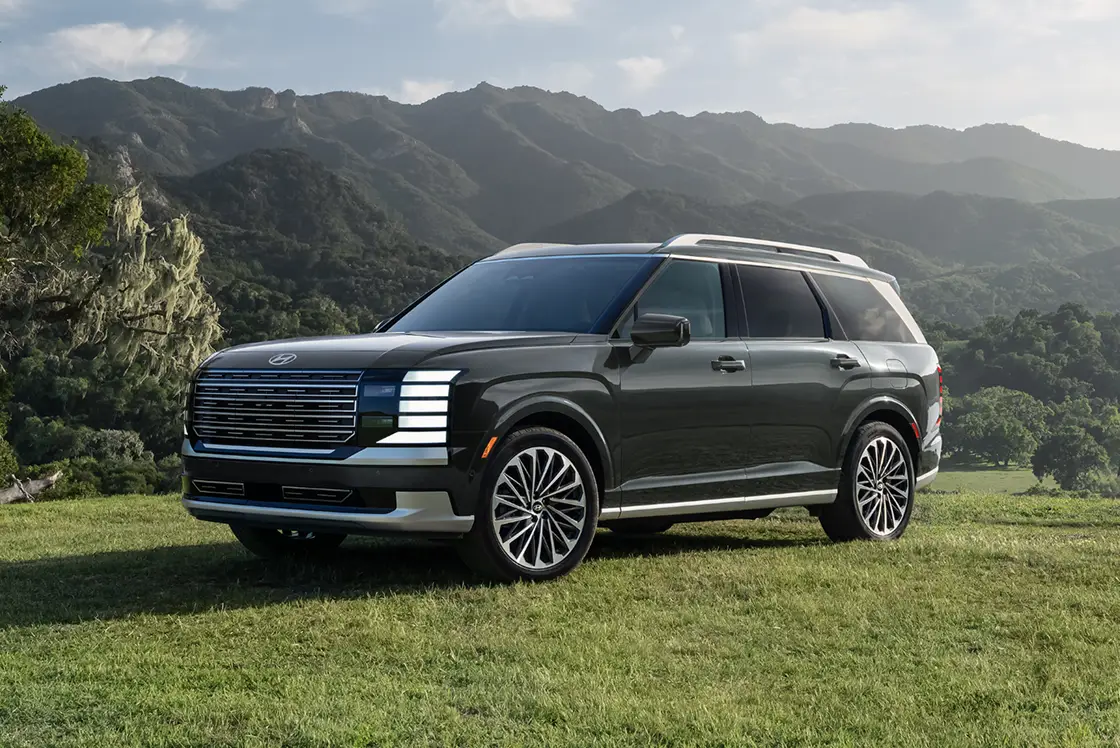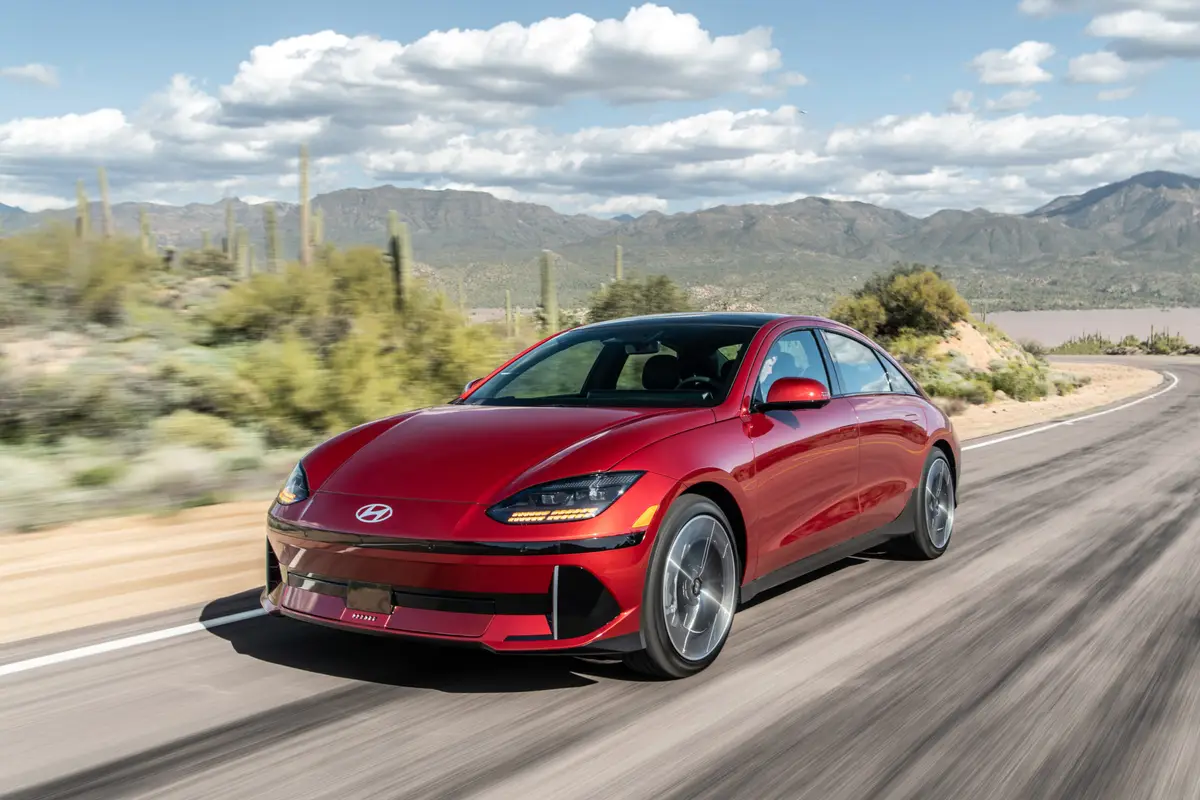How Leasing A Car Has Changed

Should I lease my next car? That’s always been a question for car buyers, but now there’s another one to ask: Will I be able to lease my next car?
Domestic automakers’ financial subsidiaries have cut back their leasing programs, thanks in large part to lower used-vehicle values, especially for big pickups and SUVs that gulp gas.
Based on poor earnings reports, Chrysler is getting out of leasing altogether, while General Motors and Ford are making it difficult to arrange a lease through their financing subsidiaries.
All automakers have reduced their reliance on leasing because it hurts an already bleak profit picture.
“This trend is continuing due to the relative high costs and risks [of leasing] compared to traditional cash and APR [discount financing] business,” GM vice president of vehicle sales and marketing Mark LaNeve said in a memo to dealers.
The difference between predicted and actual SUV residual values this year alone led to a $4.8 billion loss for domestic automakers.
So what can consumers do?
As of now, foreign automakers are still offering leases, though they may soon follow the domestics. Of course, you can also lease through roughly 4,500 independent leasing firms, or through any of the thousands of car dealers who have favorable arrangements with their banks, or through your own financial institution — bank, credit union, or savings and loan.
But the original question that remains is whether you should lease.
“Chrysler, GM and Ford are going to make leasing so expensive the wise person will avoid it,” said Jim Hossack, vice president of AutoPacific, an automotive research and consulting firm.
“Only Bill Gates doesn’t have to worry if the monthly payment is $2,000 rather than $200.
“You can always lease from others, but those others are now saying this is a bad game and we need to change the rules. We need to lower residual values on vehicles that get low mileage and charge more on those vehicles with low residual values.”
Many analysts and industry followers say leasing is going to become a very expensive proposition in which both down payments and monthly payments will rise and only the most credit-worthy customers will be welcome.
“Leasing was initially sold on the basis that it was better to tie up someone else’s money on a depreciating asset rather than tie up your own, but when you tie up someone else’s money, you still have to pay for it,” said Anthony Giorgianni, associate editor of Consumer Reports’ “Money Advisor” newsletter.
Automakers have long offered leases through their financial subsidiaries at very low rates. In fact, the monthly payments were lower than what you’d pay if you’d taken out a loan on the car. The rates were kept low by inflating the expected residual value of the vehicle at the end of the lease so the customer had less to pay off. If a car that cost $20,000 was expected to have a residual value of $10,000 at the end of a four-year lease, the automaker would put a $15,000 residual value on it so lease payments would be based on only $5,000 depreciation, not $10,000.
At the end of the lease, automakers would take the car in and sell it to get back what was invested in it. Under normal circumstances, the automaker would benefit in several ways. It could use leases to pad monthly retail sales totals in order to hang on to treasured market share, and it could keep producing leased vehicles when retail sales were soft so factories stayed open and workers stayed employed, which was cheaper than idling factories and workers, who got paid whether they worked or not.
It also meant dealers could count on customers returning in three or four years to bring the car back so they could convince them to buy or lease another vehicle.
What was once the beauty of leasing, though — getting people into your cars by offering lower monthly payments than if they bought them — are coming back to haunt automakers.
The main culprits are big, gas-guzzling SUVs and full-size pickups that were hot commodities three or four years ago — when gas cost less than $2 a gallon — but which are no longer in high demand. They’re worth very little money now when returned to automakers at the end of a lease.
“It’s a lesser-of-two-evils thing: lose volume by not leasing, or lose money by leasing at too-low residual values?” said Global Insight analyst Aaron Bragman.
So what are consumers to do? Lease, buy (new or used), or hold on to what you’ve got.
CNW Marketing Research general manager Art Spinella estimates that about 30 percent of off-lease customers will go to the used-car market, about 20 percent will lease another vehicle, and the rest will buy a new car on a long-term contract.
If they still want to lease, experts say they’ll pay hefty premiums to do so.
“The big appeal of leasing was the low monthly payment, but now manufacturers are correcting that,” said Jeff Bartlett, deputy editor of Consumer Reports.org. “Leasing is going to get more expensive, and the risk is being transferred to the customer. In the past automakers subsidized leases; you won’t see banks who offer leases doing that.”
Spinella said the artificially inflated residual values of the past helped subsidize the lease market.
“Dealers who rely on leasing will find ways to lease other than the auto finance companies,” he said. “But it will be tougher to find a willing finance company. In fact, independents are welcoming this automaker-drop-out because they’ve been squeezed by subsidized or subvented leases. Now they can charge what they have to and know they aren’t going to be undercut by GMAC or Chrysler.”
Bragman agreed that, in the end, consumers who insist on leasing will simply pay more.
“Consumers are going to pay more for a lease because the economy has made it riskier to provide a lease,” he said. “Consumers became used to leasing to get into a large or luxury car they otherwise couldn’t afford. But if the consumer wants the same low monthly payment in the future, he’s going to have to lease less car with less features.
“This is why I think leasing will go back as the method for businessmen and those who get lots of tax write-offs on their cars for business expenses to obtain their vehicles, rather than by those who use it to obtain a car for personal use.”
If consumers choose to buy instead, there’s another problem.
“If you buy, you’re going to have to stretch the loan to five to seven years to get the same low monthly payment you got when leasing three to four years, and that means after three to four years you’ll still owe more than the car is worth,” said Joe Phillippi, a principal with AutoTrends automotive research and consulting firm.
That also means that rather than getting back in the market for a new car in three or four years, you might not be back for seven years, in which case the automakers lose by having customers stay out of the market so long. And for consumers, when they do want to buy new years later, what’s the trade-in value of a 7-year-old car?
“Putting someone into a six- or seven-year finance contract guarantees they won’t return to market for five or six years,” Spinella said. “A three-year lease guarantees they’ll come back in three years, which gives them the opportunity to sell or lease another vehicle to that customer. Dealers like it because they know what vehicles are coming back, and [that] allows them to pre-sell an off-lease car to someone else.”
Many are expected to turn to buying used instead.
“This is going to help the sales of certified used cars,” Phillippi said. “If you moved up a grade or two when leasing a new car because of the low monthly payment, maybe now consumers will move up a grade or two in lower-cost certified used cars with a nav system and fancy stereo.”
Consumer Reports’ Bartlett said he thinks the problems with leasing will be resolved eventually, but advises consumers to sit back and digest everything that’s happening.
“I think we’re now in the twilight of a new leasing age in which there’ll be new alternatives, maybe groups of dealers or groups of banks offering leases,” he said. “I think the consumer now needs time to pause and do his or her homework to determine if leasing is the right thing.
“No one four years ago considered the cost of gas today would be $4 a gallon. In one respect, however, the guy who leased a big SUV four years ago won at bingo because he can bring it [back] now. The guy who bought one four years ago is hurting.”
Bartlett said the changes in the leasing market are going to affect how we buy or lease cars in the future. The tendency will be to buy less car, he said, and smaller, higher-mileage cars at that.
But if more people buy rather than lease — and extend the loan period to up to seven years when they do — those used-car trade-ins are going to get older.
Consumer Reports’ Giorgianni, however, has a different take.
“The problem is that many people used a lease for the low monthly payments so they could get a car they otherwise couldn’t afford,” he said. “Now consumers who lease are going to pay the piper because those who lease them the car are paying the piper. I think holding on to your car to see what happens would be very good. Save your money and then pay cash for a good, reliable, high-mileage new or used car you can afford, which is what you should do in the first place.”
Featured stories



